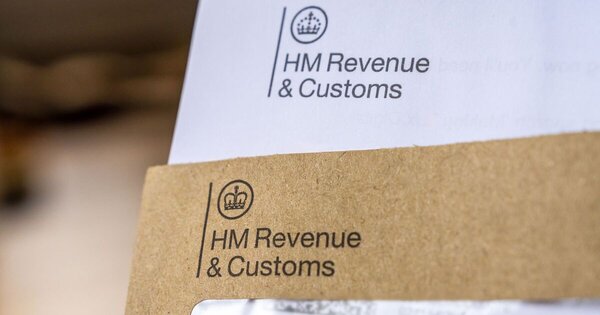Let’s Break This Down Together...
Missing your Self Assessment deadline or worried about what counts as tax evasion? You’re not alone, and it’s easy to feel confused about where honest mistakes end and serious penalties begin.
This article explains exactly what HMRC considers tax evasion, how self-employed tax rules work, and the penalties you could face if things go wrong. You’ll also discover how to fix past errors, avoid false documentation, and protect your business from unnecessary risks.
Understanding the rules now could save you stress, money, and even legal trouble later. Let’s dive in and make tax compliance a lot less scary!
What Actually Counts as Income Tax Evasion?
Tax evasion happens when you deliberately try to hide income or provide false information to pay less tax. It’s not the same as tax avoidance, which uses legal methods to reduce your tax bill.
Tax fraud involves intentional deception and can be prosecuted as a criminal offence, with serious legal consequences including penalties and imprisonment. For self-employed people, evasion might include not declaring cash payments. It could also mean claiming personal expenses as business costs.
Another common issue is failing to register for Self Assessment when your income exceeds the threshold. Failing to notify HMRC about changes affecting your tax liability can result in a notify penalty, which may be reduced if you disclose the failure voluntarily.
A penalty arises when HMRC identifies inaccuracies, non-compliance, or failures to notify, especially in cases involving undeclared income or offshore assets.
The key word here is “deliberate” – HMRC understands that honest mistakes happen. There is a clear difference between an honest mistake, such as misreporting income, and deliberate evasion, which involves intentional misrepresentation or providing false documentation.
Understanding Your Tax Obligations as a Self-Employed Person
When you’re self employed, understanding your tax obligations is essential to avoid penalties and keep your business running smoothly. As a self-employed individual, you are responsible for filing a self assessment tax return each year, reporting all your taxable income, and paying the correct amount of income tax and national insurance contributions.
These obligations also apply to anyone running a sole trader business. It’s not just about submitting your assessment tax return—HMRC expects you to keep detailed financial records, including invoices, receipts, and bank statements, to back up the figures on your tax return.
Missing deadlines or failing to pay the right amount of tax can lead to late filing penalties, late payment penalties, and even trigger a tax evasion investigation if HMRC suspects deliberate wrongdoing. The tax rules can be complex, so it’s important to stay informed and seek professional advice if you’re unsure about your tax obligations.
Planning ahead for your UK tax obligations, including timely submission of Self Assessment tax returns and using specialised software, is essential for compliance. Using accounting software or working with an accountant can help you avoid penalties and ensure you’re paying the correct amount of tax. Staying organised and proactive with your tax affairs is the best way to protect yourself and your business.

Tax Evasion Penalties That Could Hit Your Business
When you’re self-employed, understanding your tax obligations is crucial to keeping your business running smoothly. As a sole trader or anyone earning untaxed income, you’re legally required to complete a Self Assessment tax return each year, reporting all your taxable income and paying both income tax and National Insurance contributions.
HMRC expects you to maintain detailed records to back up the figures in your tax return, including invoices, receipts, and bank statements. Good record-keeping isn’t just about compliance — it also helps you claim all allowable expenses and reduce your tax bill.
Missing deadlines or underpaying tax can trigger serious consequences, from late filing penalties to interest on unpaid tax. In more severe situations, HMRC may investigate for tax evasion, and even unintentional errors can still result in hefty fines.
The tax system can be complex, especially if you have multiple income sources or business expenses. That’s why it’s wise to stay organised and seek professional advice if you’re unsure, helping you avoid mistakes and protect your business.
Late Payment Penalties: What Happens If You Miss the Deadline?
If you miss the deadline to pay your tax bill, HMRC will add late payment penalties to the amount of tax you owe. After 30 days, you’ll face a penalty of 5% of the unpaid tax. If the tax remains unpaid after six months, another 5% penalty is added, and a further 5% is charged after 12 months. On top of these penalties, HMRC will also charge interest on the unpaid tax, which means your tax bill can quickly grow if you don’t act fast.
In addition to late payment penalties, HMRC imposes a late filing penalty if you submit your tax return after the deadline, and you may be able to appeal this penalty if you have a reasonable excuse.
To avoid these late payment penalties and extra interest, it’s crucial to pay your tax bill on time. If you’re struggling to pay, don’t ignore the problem, contact HMRC as soon as possible. They may allow you to set up a payment plan to spread the cost and prevent further penalties. Remember, the sooner you deal with unpaid tax, the less you’ll owe in the long run.
Avoiding False Documentation: The Dangers of Falsifying Records
Providing false documentation to HMRC is one of the most serious forms of tax evasion and can quickly escalate into a criminal case. Falsifying records, such as creating fake invoices, altering receipts, or misrepresenting bank statements, can lead to severe penalties, including hefty fines and even prison sentences for the self employed.
HMRC has sophisticated methods for detecting discrepancies in tax returns, and being caught providing false documentation can result in criminal charges. The risks simply aren’t worth it. Instead, focus on keeping accurate and honest financial records for every tax year. Using accounting software can make it much easier to track your income and expenses, reducing the risk of mistakes or omissions.
If you’re ever in doubt about how to record a transaction or what documentation you need, consult a tax advisor or accountant. They can help ensure your tax returns are complete and accurate, helping you avoid penalties and the serious consequences of being found guilty of tax evasion. Remember, maintaining transparent financial records is not just good practice, it’s your legal responsibility as a self-employed person.

Reasonable Excuse and Appeals: Your Rights If You’re Penalised
If you receive a penalty notice from HMRC for a late tax return or missed tax bill, you have the right to appeal if you believe you have a reasonable excuse.
A reasonable excuse might include serious illness, bereavement, or unexpected events that genuinely prevented you from meeting your tax obligations. To support your appeal, you’ll need to provide evidence, such as medical records or correspondence, showing why you couldn’t file your tax return or pay your tax bill on time.
Act quickly if you want to appeal a penalty notice. HMRC will review your case and decide if your reasonable excuse is valid. If your appeal is successful, the penalty may be reduced or cancelled altogether. If you’re unsure about the process or need help gathering evidence, consider seeking advice from a tax advisor or accountant. Taking the right steps early can make all the difference in resolving your tax issues and avoiding unnecessary penalties.
Coming Clean: What to Do If You've Made Mistakes
If you realise you’ve made errors in previous tax returns, don’t panic – but don’t ignore it either. HMRC actually rewards those who come forward voluntarily before being investigated.
The Let Property Campaign for landlords offers a route to disclose past errors with reduced penalties. The Digital Disclosure Service works similarly for other taxpayers.
Being upfront and cooperative with HMRC can reduce penalties by up to 100% for careless errors. Even deliberate errors can see penalties reduced by up to 30%.
Remember that time limits apply – generally you can amend returns up to 12 months after the filing deadline. Disclosures for earlier years are still possible through formal channels. If you receive a penalty letter from HMRC, you can use the appeal form included with the letter to challenge the penalty if you have a valid reason.

Final Thoughts
Tax compliance isn't optional for self-employed people – it's a legal requirement with serious consequences for getting it wrong.
The line between legitimate tax planning and illegal evasion is clear. One uses the rules to your advantage, the other breaks them.
Getting your tax affairs in order isn't just about avoiding penalties. It gives you peace of mind and lets you focus on growing your business instead of looking over your shoulder.
Pie: Simplifying Self-Employed Tax Compliance
Running your own business brings enough headaches without adding tax worries to the mix.
The UK's first personal tax app helps self-employed people stay compliant with real-time tax calculations. We flag potential issues before they become problems.
Our team can help you distinguish which expenses are legitimate for your specific industry. The app help categorise transactions and store digital receipts.
No more shoebox of crumpled receipts! With direct HMRC filing built in, your returns are submitted accurately and on time.
Curious about how it works? Take a peek at Pie and see how we're helping thousands of self-employed people sleep better at night.











